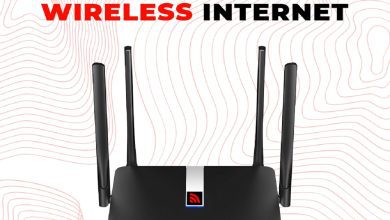Best Answers When Your Interviewer Asks “Why Do You Want This Job?”

I once spoke with a recruiter who described the question “why do you want this job?” as “the kiss of death” for job interviews. without mentioning the company at all, they would say something about being passionate about writing, programming, or some other ability. It raises an immediate red flag for her.
Therefore, despite its seeming simplicity, this question can actually be quite difficult to answer, especially if you attempt to do so without considering your audience or what they actually want to know.
The question “Why do you want this job?” is likely to be asked in most job interviews, much like the typical “Tell me about yourself” beginning. And even if the interviewer doesn’t ask you directly why you’re interested in the job, you should still be prepared to give your response and convey that feeling in your responses to subsequent interview questions.
Best Answers When Your Interviewer Asks “Why Do You Want This Job”?
Basically, how you respond to this question will reveal a lot about the key factors that the interviewer is looking for, including your qualifications, your level of enthusiasm in the position, and the value you’ll offer to the team or business.
And they demand details. Interviewers don’t ask, “Why do you want to be an accountant?” when they ask, “Why do you want this job?” Why do you desire this accounting position at this company, they ask? They want to hear why you applied and why this employment is a good fit for you (and, of course, why you make sense for the company).
Recommended Read: Application For Bank Statement
Steps to answer “Why do you want this job?”
All the excitement in the world won’t make your enthusiasm for joining the team appear sincere unless you have some knowledge of the business.
When a candidate has done their research, it is very impressive to smaller businesses. The nicest part of this is that you hardly ever need to do much more than glance over the company website or strike up a quick discussion with a current or former employee to sound like you’ve been following the business for a long.
2: Connect your skills and experiences to the job description
The next step is to convince people of your qualifications for the position. You may accomplish this in one of two ways: either by putting greater emphasis on your experiences (what you’ve done in the past that has led you to this point) or your skills (which is especially useful if you’re switching jobs or industries).
Make sure you focus on the job’s main responsibilities and a few of the “necessary talents” listed in the job posting. You’ll have plenty of opportunities to discuss how you acquired your talents and relate pertinent experiences throughout the interview, so keep it brief. Just concentrate on identifying a few of the most important, position-relevant skills or experiences when answering this question.
3: Discuss how this position fits into your overall career plan.
Finally, you need to show that the role fits with your professional goals. You want to avoid coming across as someone who is merely utilising the position as a stepping stone. Of course, you are under no obligation to clearly indicate that you anticipate holding the position for a long time. Simply demonstrate that you have thought about how the position currently makes sense for you and how it will continue to make sense for the foreseeable future.
Here are four common mistakes you should avoid:
- Not mentioning the business: Consider this: You can bring your skills with you wherever you go. The key is articulating why you want to employ them for this specific business.
- Not only that, but your interviewer wants to know what’s in it for the company as well. For example, you might learn a lot about marketing or have the chance to hone your quantitative analytical skills if you get the position. In order to use your expertise to support the company’s bigger aims, match your interests with those goals and show passion for doing so.
- bringing up non-relevant issues It can be quite enticing during an interview to bring up how close the office is to your daughter’s school or how the company’s flexible scheduling policy would make it simpler to carpool with your roommate, but resist the urge. These are excellent benefits, but ideally they’re not the only ones that make this job interesting to you.
- Giving the incorrect response: Have you ever been out on a date with someone whose ex kept coming up? It turns out that this occurs during job interviews as well. Be the kind of person who can’t stop talking about how urgently you need to quit your current work. Even if your job hunt is being driven by a specific need,
What kind of responses might such examples make?
Consider that you are at an interview for a position as an investment analyst at a small quantitative asset management firm. Your response may be something like this:
“The fact that the position was with EFG Advisers was undoubtedly the first thing that attracted my attention when I viewed the job posting. I am aware that you develop a large portion of your tools internally, that your team is tiny, and that you use a range of long- and short-term strategies with a concentration on quantitative methods in the U.S. equity markets. But the opportunity to combine my aptitude for quantitative analysis and the programming abilities I developed as a senior software engineer in a role that allows me to pursue my growing interest in investing and portfolio management truly appealed to me. I’ve been actively managing my own personal portfolio for a few years and have been considering a career change into finance for some time.






